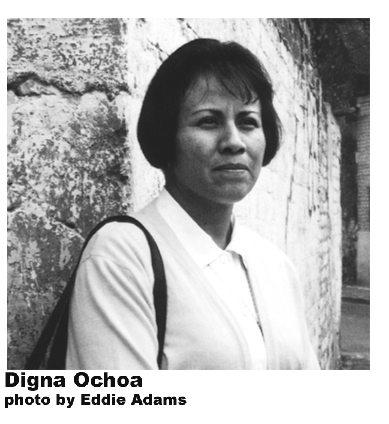Latin America
Related: About this forumMexico committed serious errors in investigation of activist death-rights court
January 19, 2022
10:13 PM CST
Last Updated 7 hours ago
Americas
By Lizbeth Diaz
1 minute read
MEXICO CITY, Jan 19 (Reuters) - The Mexican government committed serious errors in the investigation of the death of the activist Digna Ochoa two decades ago and must continue with the probe, the Inter-American Court of Human Rights (IACHR) said on Wednesday.
Ochoa, who received death threats before her body was found with gunshot wounds in October 2001, was a lawyer who defended cases of human rights violations allegedly committed by civilian and military security forces.
Investigations into what became one of the country's most high profile cases initially pointed to a murder but prosecutors later directed the investigation to a possible suicide. The case was considered closed.
. . .
Mexico must therefore continue to investigate and eventually prosecute those possibly responsible for her death, the court said, and take responsibility.
https://www.reuters.com/world/americas/mexico-committed-serious-errors-investigation-activist-death-rights-court-2022-01-20/
~ ~ ~
Remembering Digna
by CYNTHIA HAWES
NOVEMBER 9, 2001, 12:00 AM, CST
The last time I saw Digna Ochoa, the Mexican human rights lawyer who was murdered last month, was in June of 2000. Digna had been hounded by death threats for years and had managed–just barely–to foil an attempt on her life. Now she had been offered a chance to study in Washington, D.C., and decided it was time to leave Mexico for a while. Before she left, I wanted to interview her and drove to the nondescript, middle-class neighborhood where she was living, temporarily sharing an apartment. As Digna explained, she no longer felt safe living alone. As I arrived at her street in the Colonia Roma Norte, I couldn’t help but think that it seemed rather dark. It didn’t seem safe, considering all that she had been through.
I had known Digna for years and admired her daring and bold nature, her courageous and sometimes unorthodox way of standing up to judges, speaking up to the police, confronting the military. During one trial, for example, she fought to prevent two judiciales from conferring with each other during the proceedings and corroborating their testimony. First she told them they couldn’t talk to each other–that would be clearly illegal. Intent on defying her, the two men went outside; intent on defying them, Digna followed them outside. Then the judiciales went back inside and sat down on a bench; she sat between them to keep them from talking. Furious, they took off for the men’s room. Immediately, Digna followed and put her foot in the door to keep it open. She later reported them to the judge, who invalidated their testimony.
I got to know Digna because she often worked on cases with my husband, José Lavanderos. When I first met her, she was a staff attorney at the Jesuit-run Miguel Agustín Pro Juárez Human Rights Center (the Pro) in Mexico City. The legal department represented clients in high-profile cases–cases that other lawyers either refused to accept, or would accept only if they were paid the kind of fees that the defendants couldn’t pay. Most of theses cases had to do with abuse by the police, army corrupt officials–particularly against campesinos and suspected guerrillas. The Pro and its legal team began to gain considerable attention when they took on the defense of presumed Zapatista leaders who were arrested following the short-lived Zapatista uprising in 1994. The team was successful in obtaining their release, but during that time the death threats began. Letters filled with obscenities were directed at the legal team, other members of the Pro, and, in some cases, against their families, including their children. Our family was no exception.
. . .

. . .
Last August she sent an e-mail to one of her sisters, telling her that if anything happened to her, it would be the army that did it, and making arrangements for the distribution of her limited personal effects. On the afternoon of October 19, Digna went to the office of her friend and colleague, Pilar Noriega. Noriega had just been appointed to a position with Mexico City’s Human Rights Commission, and she would be taking over her cases. Among the cases was that of two brothers accused of planting bombs that exploded outside several Mexico City banks last August; their first court appearance was set for the following Monday. But Digna would not be there. While she was working in Pilar’s office, she was shot to death. Her killers left behind a murder weapon–a rather unusual Czech gun from the ’40s and ’50s, according to press accounts–a weapon that would be difficult to obtain. They also left behind a chilling note: “Pro sons of bitches, if you keep it up, the same thing will happen to you.”
More:
https://www.texasobserver.org/465-las-am%EF%BF%BD%EF%BF%BD_%EF%BF%BD%EF%BF%BD_ricas-remembering-digna/